Turmeric is an anti-inflammatory, antioxidant wonder spice. Known not only to decrease inflammation but also to treat depression, improve brain function and reduce cardiovascular risk, turmeric induces a host of positive health effects. Not a day goes by without an article boasting the benefits of turmeric. For most people, turmeric works beautifully. For some of us, however, there may be a significant downside to taking this supplement.
Turmeric and the MAO Enzymes
Turmeric, and its active compounds of the curcumin family, work some of their magic by binding with and blocking the action of enzymes involved with the catabolism (inactivation) of what are called the catecholamines or monoamines: serotonin, dopamine, and norepinephrine. The enzymes, called monamine oxidazes (MAO A and B for short), maintain the critical balance of neurotransmitters in the brain (and elsewhere) to ensure that there is neither too much or too little. Some of the first anti-depressants designed by pharmacologists inhibited the MAOs (monoamine oxidaze inhibitors – MAOIs) based upon the notion that depression was a result of too little serotonin, dopamine and/or norepinephrine. Consequently, when I was in graduate school, the hottest schizophrenia research suggested mutations in these enzymes (and others like COMT), were linked to the onset of psychosis. Though controversial, the MAO theory remains prominent today. The reduction in enzyme activity was also linked to aggression and violence. These hypotheses were based upon the belief that psychosis was a result of too much dopamine floating around in the brain, while the increased aggression and violence was believed to be loosely associated with excessive serotonin, dopamine and/or norepinenphrine.
Since the 1990s or so, drugs that inhibit MAOs have largely been replaced serotonin reuptake inhibitors or serotonin/norepinepinephrine reuptake inhibitors (SSRI/SNRI) due the myriad of side effects associated with MAOIs. Namely, MAOIs can induce hypertensive crisis, particularly if one consumes foods high in tyramine like cheese, wine, and chocolate. Tyramine blocks MAO-A, further inhibiting an already blocked enzyme.
In addition to their roles in maintaining serotonin, dopamine and norephinephrine balance, the MAO-A and MAO-B enzymes also breakdown and deactivate phenethylamine, benzylamine (MAO-B), tyramine, and tryptamine (MAO-A and B). Phenethylamine is a central nervous system stimulant, close analogs of which form the backbone of many stimulant drugs like amphetamines. The inability to breakdown these compounds, thus, would have serious hyper-stimulatory effects in the brain and in the heart.
Already Deficient in MAO and COMT?
Turmeric is a natural MAOI explaining many of its purported antidepressant effects. While this is viewed a positive effect, in individuals who take MAOIs and/or have mutations in the MAO enzymes, turmeric may be problematic. I am one of those people. I have multiple mutations in the MAOB enzyme and am homozygous in a few. I carry a few homozygous in COMT mutations. I just happen to know this because we did 23andMe testing as a family last Christmas and I am slowly making it through the SNP (single nucleotide polymorphism) analyses. Given my PhD in psychology, finding that I had a propensity towards psychosis was quite the family joke.
I did not know turmeric was an MAOI when I began taking it, nor was I aware that I had these mutations. I had focused solely on its antiflammatory capacity which works by entirely different mechanisms. I suspect many others, including physicians prescribing this compound, are neither aware of its MAOI properties nor aware of the large number of folks who carry mutations in these enzymes. According to Livewello.com, where we ran the SNP analyses, a significant percentage of the population may carry mutations that decrease the activity of one or both of the MAO and/or COMT enzymes (20-50%, depending upon the SNP in question). The mutations are not as rare as we suspected.
What Happens When Someone With MAO Issues Takes Turmeric?
All sorts of things go haywire, according to my experience. Let me preface this by saying, I am 50 years old, healthy and active (competitive powerlifter plus crossfit). I take no medications; haven’t for years. I don’t drink, don’t smoke and I eat well. I have had a lifelong battle with extremely fickle and highly reactive blood pressure (one of the reasons I take no medications) but I have learned how to control it with diet, and except for periodic episodes, haven’t had high blood pressure in years. (With the genetic testing I found out that I also have a bunch of mutations in the renin-angiotensin system – explaining many of my issues with blood pressure and I have always suspected I have this mutation but it isn’t included in the 23andMe analysis, at least that I can tell).
I began taking turmeric, for no real reason other than its anti-inflammatory actions. After taking it regularly for 8 or 9 months, my blood pressure began going up again. I did not know why, as I had not connected the dots yet. Over the course of about 6 weeks, I gained 7lbs with no changes in my diet, suggesting perhaps a new onset insulin resistance. I also began to have hot flashes and night sweats. Overall, my chemistry just seemed off. I assumed I was hitting menopause. I may yet be approaching menopause, but I suspect now these symptoms were related to the turmeric – induced MAO inhibition. Since I already have reduced MAO and COMT capacity, the turmeric, as mild as it is, may have been just enough to send my chemistry into a tailspin. Because the reaction wasn’t immediate, I suspect there was some sort of cumulative effect that ultimately altered enzyme activity or receptor activity, or perhaps, a threshold was met, I am not sure. Nevertheless, the accumulating serotonin would explain the weight gain and potential change insulin sensitivity. The excess dopamine (perhaps via downregulated dopamine receptors and altered renin-angiotensin function), combined with the norepinephrine and phenethylamine would connect to the hypertension I was experiencing. And the entire mess would disturb the autonomic system towards increased sympathetic tone, which would account for the hot flashes/night sweats and general temperature dysregulation.
I stopped taking the turmeric about a month ago and everything has returned to normal. My blood pressure has settled down, no more hot flashes and the weight is gradually coming back off. Again, no changes in diet.
Lessons Learned
If there is a lesson in this event, it is that no supplement is safe for everyone. I cannot help but wondering what might have happened had I not connected the dots. Would I have progressed into a full blown hypertensive crisis, a serotonin syndrome of sorts or some other equally deleterious event? Perhaps. We’ll never know, because I stopped taking the supplement.
I should note that it was only by happenstance that I connected these dots. I just happened to know that I had these mutations, happened to have studied them in graduate school, and happen to monitor my blood pressure. If any one of these pieces were missing, I doubt I would have considered turmeric as the culprit.
Bottom line – human chemistry is complicated, each of us is a genetic mess, and for as much as we know about genetics and health, we have only scratched the surface. If you are taking a supplement, even if you have been taking it for a while, and weird symptoms arise, consider the possibility that it may not be effective for you.
We Need Your Help
More people than ever are reading Hormones Matter, a testament to the need for independent voices in health and medicine. We are not funded and accept limited advertising. Unlike many health sites, we don’t force you to purchase a subscription. We believe health information should be open to all. If you read Hormones Matter, like it, please help support it. Contribute now.
Yes, I would like to support Hormones Matter.
Image by Anthony from Pixabay.
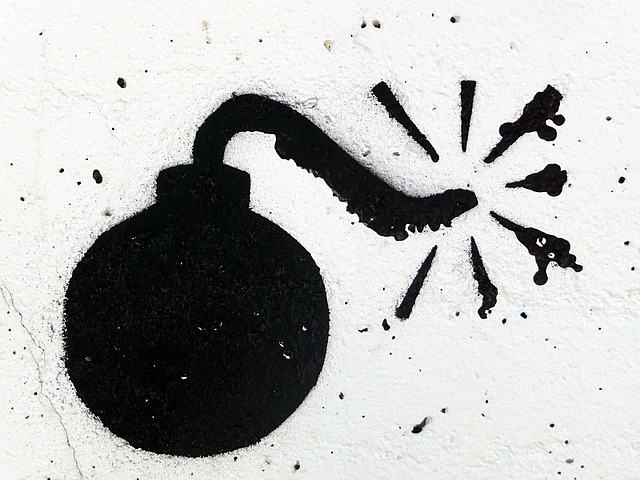

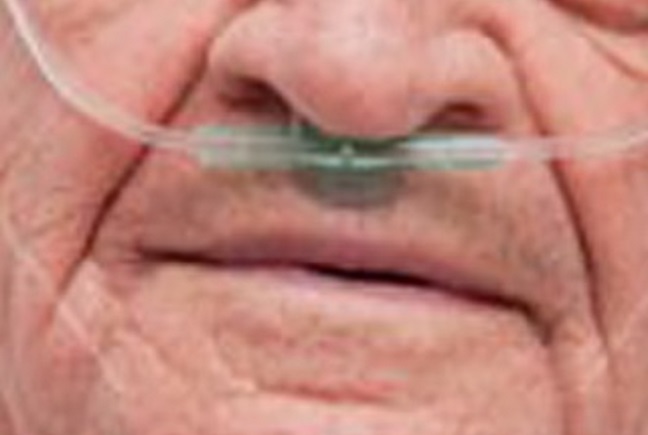

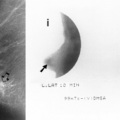

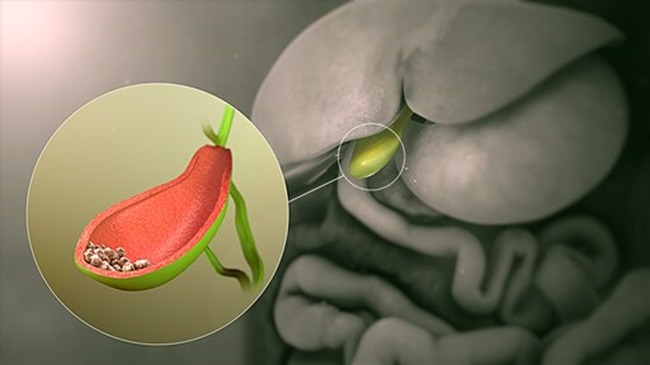
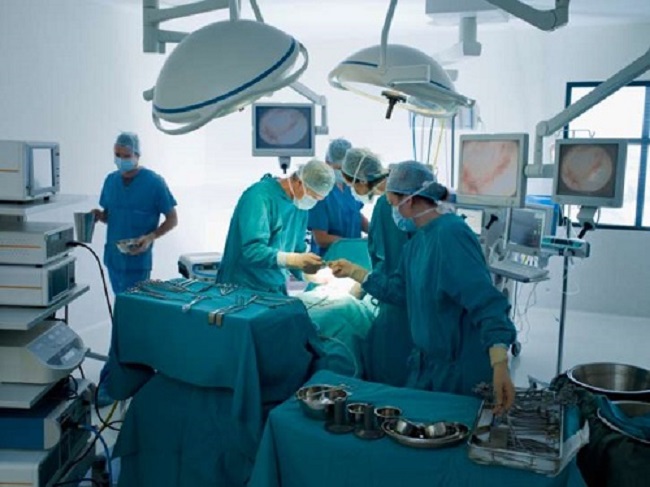
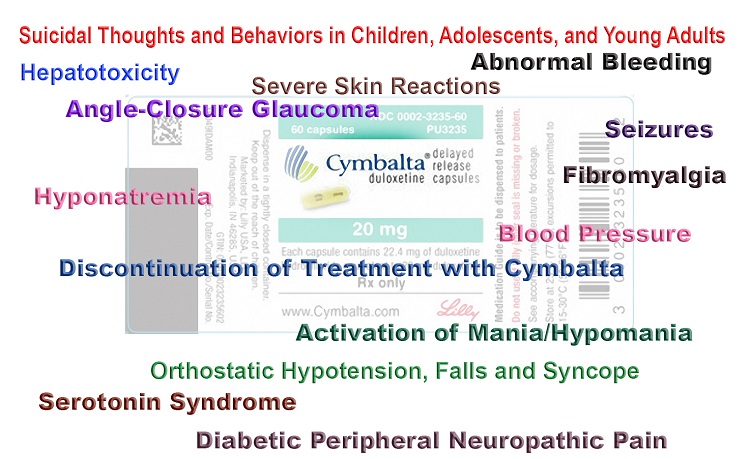

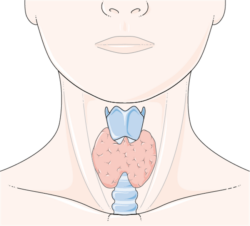


Thanks for all these knowledge, Turmeric did help me as a an antibiotic, I do suffer from gout and it hasn’t helped me for any anti-inflammatory properties.
Recently I have had Tyramine intolerance and unable to take any nuts, sweeteners etc……. and found that turmeric causes migraine due to MAOI activities.
Not sure why is this happening, but any more information on these would be really helpful ?
Has Calcium supplements helped more MAO hormones in the body to digest Tyramine, any help would be great please!
Wow – THANK YOU for this. 1) Could an overdose of an MAOI induce these sort of enzyme changes? I had been taking turmeric with piperine twice a day for years, and one day accidentally ingested another supplement containing BIOPERINE…. that’s when my episodes started. I believe I was overtaking selenium and chromium, which may have compromised my liver. 2) I am also curious if liver damage could cause these sort of enzyme changes (my AST and ALT have been elevated since onset of episodes).
This all happened five months after discontinuing a decade of continuous oral BC use, I began experiencing nearly daily episodes of hypertensive crisis for about 7 weeks. Scary for an otherwise “mega-healthy” person. I have been trying to problem-solve this intensely to figure out what the root is. I had also had swelling in my neck for one month prior to onset, lasting until a month into the start of the BP episode issues. I have reduced my coffee by 90% (I drink it very slowly too), and I stopped all supplements at the onset of the BP symptoms, and have followed an MAOI diet (despite taking no MAOI currently) for a while now. I also noticed an improvement in symptoms when I took several days off from using my “light therapy” lights, and am now carefully regulating exposure to that light source.
I have since re-introduced tiny pieces of turmeric solo, and also combined with a tiny pinch of black pepper. Whammo – symptoms.
I would appreciate your input and thoughts – and suggestions on any labwork I could ask my PCP to order, to shine light on all of this.
Very helpful, thanks for writing
ditto re: quercetin. Massive BP spikes 200/110… stopped quercetin and BP spikes stopped. Doc had me on 2000mg quercetin for mold illness. took me almost a year to figure this out. Very scary bp spikes
Can you please share studies that show curcumin/tumeric lowers maoa..my functional doctor has me on mega liposomal doses for my autoimmune disease and i feel worse, lately, but hard to tell, but for sure, no benefit after nearly for weeks which is unusual.
Thank you
great info. till this day im trying to solve the mistery of 2 episodes that pretty sure almost killed me (never felt anything like that in my life). a mistery with only 3 clues: highly concentrated turmeic on empty stomach followed by hypertensive crises (BP abover 190 x 100) and crazy, tingling weird sensation in my thyroid (im a man by the way). i was 36 when those 2 episodes happened. the symptoms lasted for hours and hospital people couldnt identify what it was. i had to take stillknox to knock me out hoping id wake up alive. some other clues: im fit, gym 2x a week, never had BP problems, no medications, no drugs, no smoke, just beer 2x a week. i was able to connect the dots brcause the cisis started in the morning about 15mins after taking turmeric. never took turmetic again, never had the crisis again. but the weird thing is, i had taken turmeric countless times before without anything like that happened. solve me that if u can.
Other than calcium, is there a way to increase MAO? Asking for my son who is very hyperactive and has MAO SNP. Thanks
I accidentally discovered this about myself about 4 or 5 years ago. I stopped taking Turmeric and a year later I found I was still sensitive to Tyramine-containing foods, many of which happen to be my favorite foods. I thought that perhaps the Turmeric had produced some kind of long-term deficiency in MAO, so I tried to find out how to increase the production of MAO. I found that calcium stimulates the production of MAO. I have supplemented with more calcium for another year but am very cautious about experimenting with seeing if this worked to increase my MAO. Do you have any knowledge of additional ways of increasing MAO?
I have serious health issues which I handle quite well along side managing a husband with a brain tumor. I am very tyramine sensitive and get sudden spikes in blood pressure / headaches etc. Recently I started making rainbow smoothies every morning and found that a two inch finger of turmeric root was an easy healthy addition. Headaches every day since. No idea why, as every aspect of our diet was really clean. Now I know.
Turmeric is only a very weak MAOI. It also has very low oral bioavailability. You’d need to take grams of it daily to even get to double digit MAO inhibition.
Tumeric brings on interstitial cystitis (bladder pain) for me. Don’t know why.
Turmeric contains oxalates bad for people with unhealthy kidneys and for people who are anemic,,it chelates iron .
many supplements do not contain high level of oxalates.
I’m homozygous for 4 comt lowering mutations. I found a table somewhere in pubmed (couldn’t relocate) that showed how these interact and it said <70% Comt function. Catecholamines are not my friend.
I have a MAO SNP that indicates I'm higher MAO. Interesting that cheese, wine, and chocolates are higher tyramines and top 3 on my crave list, but also have catecholamines. I've been on/off curcumim without noticing much but maybe worth a revisit.
Great article! And triggering another research binge.
After being on an MAOi for 15 years, I decided to quickly taper off Nardil (phenelzine) in order to see if I still have underlying depression. (Just FYI, don’t taper off MAO inhibitors rapidly! You may suffer from physical symptoms for months, as I did.) I only recently found out that turmeric is an MAOi, but have never never had a negative response to taking it with Nardil. I am not recommending that anyone here take the forbidden foods, medications, or supplements with an MAOi, but I have safely eaten hard cheeses, chocolate, huge amounts of caffeine, and a number of other things that supposedly interact with MAOis (including Adderall, Provigil, and other stimulants). I DO avoid dextromethorphan, decongestants, chicken livers, fava beans, and red wine. So be careful with MAO inhibitors, but know that they are not as dangerous as stated in the medical literature. They are useful drugs for treatment-resistant depression, but potentially difficult to withdraw from. I am a psychiatric social worker and have tried a broad range of meds for depression. I would love to hear about the experiences of anyone else who has been on Nardil or who has gone through withdrawal from it.
I think I have similar issues with both high blood pressure and the same turmeric reactions. I would like to know what sort of a diet works for your blood pressure. I’m on 3 bp meds and still have hypertension. Thanks so much for your insights. I think this answers many questions I have grappled with
I do low carb, high protein/fat, lots of vegetables and a few fruits, mostly berries. I avoid all processed foods and breads/pastas etc. for the most part. I also workout religiously. Exercise is critically important. I cannot take any ancillary medications like cold medicines or even ibuprofen, as my BP seems to be particularly reactive. I also take vitamins (thiamine is important -lots of articles on this site and the book), minerals (magnesium glycinate), essential fatty acids. The gist — I got as healthy as I could diet and exercise wise. I should also note, it’s not necessarily about losing weight per se, but about eating well, sufficient protein and fat, and moving well. If you focus on that, everything else falls into place.
Thanks so much. I do much the same diet but need to up the exercise. Just waiting now for the turmeric to leave my system. Have you found tyramine rich foods a problem when not under the influence of turmeric?
No, not really, but I don’t eat/drink them very often.
The reason I stumbled upon this site is because I started getting a headache after my second cup of coffee. I don’t usually get headaches, and a coffee usually helps. But I made a Turmeric milk drink yesterday. It exacerbated my tinnitus. I’m used to tinnitus, but coupled with the headache today, I wondered if Turmeric had MAOi properties. My online search brought me here and, bingo! So, thanks for writing this article. When taking MAOi’s it is important to avoid alcoholic drinks, most mature cheeses, salami, pickled foods, chocolate, caffeine, SSRI’s and numerous other drugs, etc. This is a very short list. A google search will provide a more comprehensive one. Safe foods to consume with MAOi’s include potatoes, bananas, cottage cheese, rice, etc, the list goes on and an online search is highly recommended.
Just learned that the antibiotic LINELOZID is an MAOi, also. Thanks for all of your great information, Chandler!
One thing that may be tried is to experiment with some forms of Mg with Turmeric for COMT/MAO individuals.
– Mg Glycinate
– Mg Threonate
So is there an alternate natural anti-inflammatory for people with this problem? Or will they react to any of them.
Not that I am aware of.
Devils claw, I use a tincure by A.vogel.
This has been incredibly helpful! I’ve been making turmeric drinks before bed for months and recently started getting severe hot flashes at night and no idea why. This explains a lot!!
Yea, it sure threw me for a while. Couldn’t figure out what the heck was going on.
Thanks for the simple explanation. My hands full of MOA & COMT issues, not fully explained by 3rd party readers of 23andMe’s v5 chip nor by 23’s inability to provide analysis to Australia, show my inability to process catecholamines. Therein lies explanation to my explosive past as theorized by Michaela Holden’s series on ‘Born Hunters’ for autism, https://www.youtube.com/watch?v=JSTPJ9ovRH4 . While battling Candida & gut dysbiosis quercetin was probably useful but now I cannot handle even ginger tea.
I am an acupuncturist. This makes total sense to me. One doesn’t take herbs willy-nilly.
I have Come++ and cyp1a1 and..don’t know much else..did a detox genomic profile only…am remembering my food intolerance testing had me doing somewhat poorly w quercitin, cumin, Tumeric, cayenne , ginger+ black pepper..thought I had issues w hot spices..could it be the above issue? Have HBP and am taking Tumeric ….just started. …what do u think? Had a bad reaction yrs ago to the THC in Hashish cigarette..in 72…scared the heck out of. me…am sick from toxic Mold remodel + was hoping Tumeric would help the inflammation!! I just may stop..what do u think Chandler?
It could be.
Quercetin led me down a similar path. Different symptoms but affected me quite dramatically!